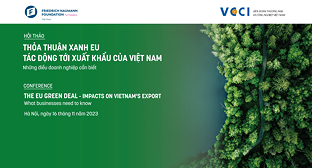Developing Countries, Dispute Settlement, and the Advisory Centre on WTO Law
16/08/2010 12:00
Chad P. Bown
Rachel McCulloch
Critical appraisals of the current and potential benefits from developing country engagement in the World Trade Organization (WTO) focus mainly on the Doha
Round of negotiations. This paper examines developing country participation in the WTO dispute settlement system to enforce foreign market access rights already negotiated in earlier multilateral rounds.
The dispute data from 1995 through 2008 reveal three notable trends: developing countries’ sustained rate of self-enforcement actions despite declining use of the Dispute Settlement Understanding (DSU) by developed countries, developing countries’ increased use of the DSU to selfenforce their access to the markets of developing as well as developed country markets, and the prevalence of disputes targeting highly observable causes of lost foreign market access, such as antidumping, countervailing duties, and safeguards. The paper also examines potential impacts of the Advisory Centre on WTO Law (ACWL) into the WTO system in 2001. A close look at the data reveals evidence on at least three channels through which the ACWL may be enhancing developing countries’ ability to self-enforce foreign market access: increased initiation of sole-complainant cases, more extensive pursuit of the DSU legal process for any given case, and initiation of disputes over smaller values of lost trade.
This paper—a product of the Trade and Integration Team, Development Research Group—is part of a larger effort in the department to evaluate the impact that international institutions have on the market access opportunities of developing
countries. Policy Research Working Papers are also posted on the Web at http://econ.worldbank.org. The author may be contacted at cbown@worldbank.org.
The Policy Research Working Paper Series disseminates the findings of work in progress to encourage the exchange of ideas about development issues. An objective of the series is to get the findings out quickly, even if the presentations are less than fully polished. The papers carry the names of the authors and should be cited accordingly. The findings, interpretations, and conclusions expressed in this paper are entirely those of the authors. They do not necessarily represent the views of the International Bank for Reconstruction and Development/World Bank and its affiliated organizations, or those of the Executive Directors of the World Bank or the governments they represent.
Các tin khác
- The Dispute Settlement Crisis in the World Trade Organization: Causes and Cures (16/03/2018)
- Modification of trade defence rules regarding non-market economy costs and prices (23/02/2018)
- Research Paper: Options for Disciplining the Use of Trade Remedies in Clean Energy Technologies (03/08/2017)
- Addressing the rise of Trade Remedies against Environmental Goods (03/08/2017)
- Anti-dumping Retaliation - —A Common Threat to International Trade (15/11/2016)
 Home
Home
 About Us
About Us




















